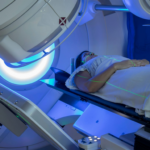
Prostate cancer, a prevalent malignancy among men worldwide, often carries with it a cloud of myths and misconceptions. Understanding the truth behind these myths is crucial for effective prevention, early detection, and treatment. In this article, we debunk common prostate cancer myths and present the facts supported by medical expertise and research.
Myth: Only older men get prostate cancer.
Fact: While age is indeed a significant risk factor for prostate cancer, it can affect men of all ages. The risk increases significantly after the age of 50, and about 6 in 10 cases are diagnosed in men aged 65 and older. However, younger men can also develop prostate cancer, albeit less frequently.
Myth: Prostate cancer is not a serious disease; it’s slow-growing and not life-threatening.
Fact: Prostate cancer can vary greatly in its aggressiveness. While some prostate cancers are slow-growing and may not require immediate aggressive treatment, others can be highly aggressive and spread quickly to other parts of the body, becoming life-threatening if not treated promptly.
Myth: If you have a family history of prostate cancer, you will definitely get it too.
Myth: Prostate cancer screening is unnecessary if you don’t have symptoms.
Fact: Early-stage prostate cancer often does not cause noticeable symptoms. Regular screenings, such as the prostate-specific antigen (PSA) blood test and digital rectal exam (DRE), are essential for detecting prostate cancer early, when treatment is most effective. Men at higher risk, including those with a family history, should discuss screening options with their healthcare providers.
Myth: Surgery and radiation therapy are the only treatment options for prostate cancer.
Fact: Treatment options for prostate cancer depend on various factors, including the stage of cancer, its aggressiveness, and overall health. While surgery and radiation therapy are common treatments, active surveillance, hormone therapy, chemotherapy, and newer therapies like immunotherapy may also be recommended based on individual cases.
Myth: Prostate cancer treatment always causes severe side effects, such as impotence and incontinence.
Fact: While some treatments can cause side effects like erectile dysfunction and urinary incontinence, not all men experience these effects, and advancements in treatment techniques have reduced their occurrence. Moreover, early detection and personalized treatment plans can help minimize side effects while effectively treating prostate cancer.
Myth: Herbal supplements provide a reliable cure or prevention for prostate cancer.
Fact: Despite claims of effectiveness, there is no conclusive evidence that herbal supplements or alternative therapies can cure or prevent prostate cancer. It’s crucial to rely on scientifically proven medical treatments and consult healthcare professionals before trying any alternative therapies.
Myth: Once treated, prostate cancer will never come back.
Fact: Prostate cancer recurrence is possible, even after successful treatment. Regular follow-up appointments and monitoring are essential to detect any signs of recurrence early and provide timely intervention if needed.
Myth: Prostate cancer is contagious.
Fact: Prostate cancer is not contagious and cannot be transmitted from one person to another through any means, including sexual contact or close interaction.
Summary
Separating myths from facts about prostate cancer is essential for promoting awareness, early detection, and effective treatment. By debunking these misconceptions, individuals can make informed decisions about their health and well-being. Remember, regular screenings and consultations with healthcare providers, such as those at Cancer Care Pune clinic located in Pimple Saudagar, are crucial steps in managing prostate health. Dr. Jagdish Shinde, recognized as one of the Best Oncologists in Pune, emphasizes the importance of proactive health management and personalized treatment approaches. Stay informed, stay proactive, and prioritize your prostate health for a better quality of life.




